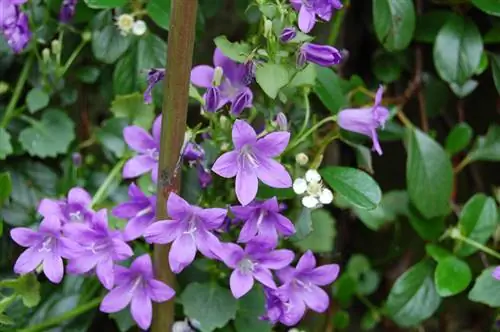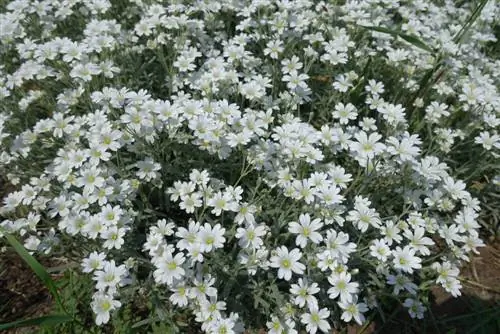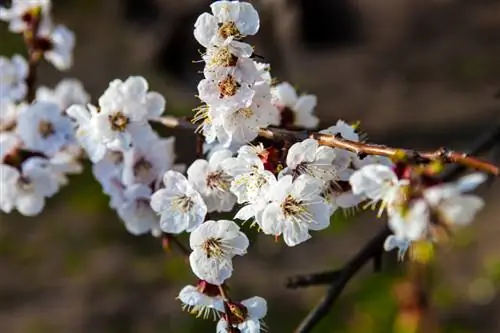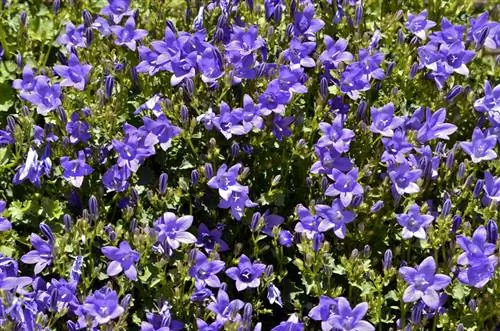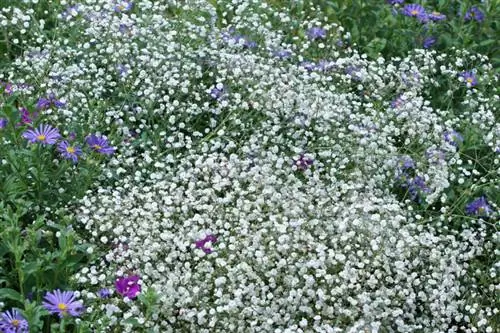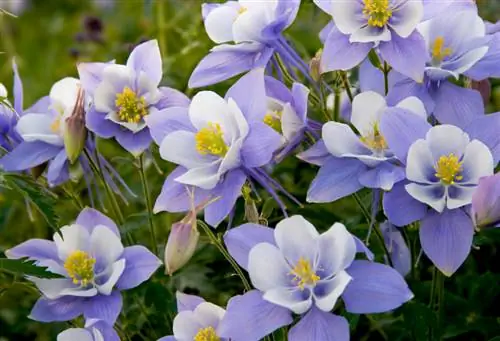- Author admin [email protected].
- Public 2023-12-16 16:46.
- Last modified 2025-01-23 11:20.
Botanically speaking, most species of bellflowers are perennials, although a few campanulas are only annual or biennial. Perennials offer a range of benefits to the gardener, but they also need a nurturing hand.
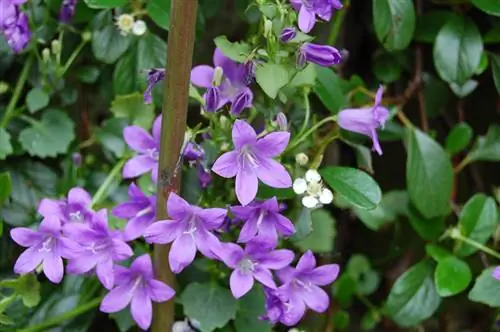
Are bluebells perennials?
Bluebell perennials are perennial, herbaceous plants that can grow and bloom for many years. They require regular care such as cutting off dead shoots, loosening the soil, weeding and fertilizing. However, some species of bluebells are annuals or biennials and require different care.
What are perennials?
From a horticultural perspective, the term “perennials” applies to herbaceous plants that last for several years and whose above-ground parts usually die in autumn, while the rootstock overwinteres, protected by the soil. However, it is not necessary for the upper parts to die off, as some perennials - including bluebells - overwinter without the leaves dying.
Perennials need a lot of care
Many gardening enthusiasts are of the opinion that you just have to plant perennials and then leave them to their own devices. As the example of the bellflower shows, this is simply wrong. Perennials also need care, in fact a lot of care compared to some woody plants. This includes, for example, the fact that dead shoots have to be cut off, otherwise the plant has to use too much force to produce seeds and flowers less, but also the regular loosening of the soil, weeding - unless you use the bellflower as a ground cover - and that Fertilize. You should also remove perennial bluebells from the ground after about three to five years, rejuvenate them by dividing them and replant them.
Care for bluebell perennials depending on the species
However, when it comes to perennial care, you have to keep the specific type of bluebells in mind: Some bluebells, for example the popular St. Mary's bluebell, are biennial plants and therefore cannot be treated like a normal, perennial perennial. Of course, this especially applies to the annual varieties. For example, you should not cut these down radically, otherwise they will no longer sprout. Cutting off the withered inflorescences is also problematic, as the seeds cannot ripen.
Perennials have many advantages
Perennials have a big advantage: They reliably come back every year, even if their above-ground plant parts have frozen over the winter. Bluebell perennials often last for many years without you having to buy or grow new plants every year. Nevertheless, you can of course still propagate your Campanula, which can be done quite effortlessly by dividing or using the ripe seeds.
Tips & Tricks
Bluebells can not only be used as perennials for borders, rock gardens or beds, but also as ground cover.

